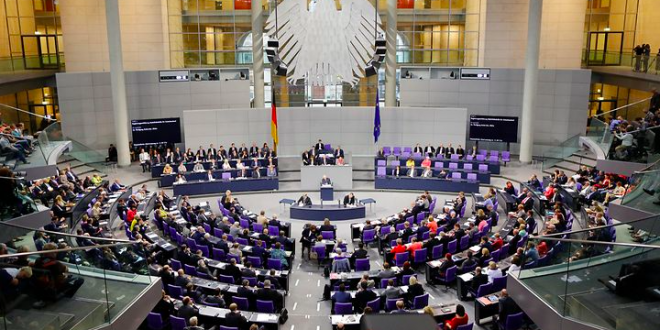Observing German regulatory developments ahead of 2021, Regulus Partners states that in seeking to have a rule for everything, the onrushing Interstate licensing regime is likely to be immensely destructive on many levels…
Perhaps attempting to prove that there is such a thing as a national character, German licensing authorities are now applying considered and potentially highly effective operational engineering to a hopelessly flawed strategy. It is possible that some good things will come of this, but as Clausewitz pointed out: ‘the enemy of a good plan is the dream of a perfect plan’.
Up until this month, the German online gambling market has been a highly dynamic one, but it has taken no prisoners. Growth to a c. €2bn NGR market has been very tough for those which have not innovated locally while also sailing close to the regulatory wind.
Bwin was once a leader but did not have a strategy adapted to 5% turnover tax, mass-market betting (vs. mass-market advertising: it wasted a lot of money on that) or mobile adoption (belatedly fixed, but brand damage is done). Omnichannel powerhouse Tipico has been bigger than bwin online for most of this decade and now has c. half the betting market: Tipico can therefore withstand toleration changes better than any, despite a c. €100m revenue exposure to casino.
Similarly, the exit of German omnichannel operators in gaming (December 2017) combined with a highly localised product and payments environment has allowed Rhinoceros to take c. 8-10% casino share: from a standing start in 2017, the group generated €100m revenue in 2019 (mostly DE) and Wundercasino has become the third largest DE brand in three years (RP estimates).
As a casino-led operator, Rhinoceros might have a lot of challenges in dealing with licensing conditions (the Mybet acquisition offers only the thinnest sliver of betting share), but the rapid growth should remind stakeholders of how unstable market share can be. Anyone (other than Tipico and Flutter for poker) assuming (rather than just claiming) that they have “leading” market share could be falling into a trap – and even the leaders are vulnerable, in our view.
In order to accommodate the heavy users which still dominate most betting P&Ls, the 15+ licences issued so far have a range of specific conditions to provide greater flexibility. GVC has advised that the €1,000 pcm wagering limit (suggesting normalised post tax win of €500-2000 pa: a happy median but a dangerous cap) can be lifted to a much more heavy-user friendly €10,000 with loss limits set and other conditions, while further EDD can unlock €30,000 pcm wagering limits for 1% of VIPs.
On the face of it this looks like a very well-engineered structure designed to accommodate existing spend patterns with appropriate safer gambling measures in place (it should also allow anyone still thinking that sports betting is mostly a mass-market activity in revenue terms to do the maths). This small element of the structural re-engineered demonstrates a level of operational flexibility, accountability and ‘appropriate complexity’ often lacking in regimes that are usually either too open or too blunt. However, this elegant and responsive regulatory engineering cannot overcome three fatal strategic flaws, in our view.
First, and most obviously, limiting gaming to €1 slots and poker takes out c.55% of the market. However, this isn’t the same as all operators losing 55% of their gaming revenue. For those without a strong poker position (there are only three at the moment, but this may change – see below), the impact is more like 80% – but the damage is unlikely to stop there.
Second, a combination of 5% turnover tax and EED is likely to make the betting experience rather unattractive – especially given that the loss of most DE gaming revenue is likely to make operators more cautious about covering some or all of the betting duty costs themselves (many operators only directly charge winning customers). Heavy user bettors who like value, flexibility and anonymity are therefore likely to join all the gaming customers in looking for black market solutions.
Regulatory enforcement and blocking methods will undoubtedly curb this activity, but a porous Nordic market (especially) has developed a ready-made solution (Germany is also the European ancestral home of payments ‘alternatives’ – before and during Wirecard’s attempted veneer of respectability). This is not just bad for operator market share due to weak channelling, it also means that the EDD and other social responsibility measures being created will miss most of those they are designed to protect.
Finally, and this is the bit that we do not think is factored into current expectations, there will be just enough market left to be dynamic. Really restrictive licensing regimes can have perversely positive results for incumbents – as we have often argued. Nordic monopolies (FI, NO) might think that 35-45% market share looks like failure when the aim is 100%, but it is a stunning real-world success. Equally, “betting without the favourite (bet365)” has allowed operators to develop strong market share where bet365 isn’t (BE, CZ, FR, PL, PT, RO), or where it can’t bring in-play value effectively to bear (AU, DE).
Germany also has its share of capable local operators who will be relatively strengthened (or opened) by the changes (especially local gaming operators who will be re-entering). By dangling the carrots of restricted (rather than no) gaming, heavy user betting rules that might appear to work (absent channelling issues) and further reform (creating toleration of losses), everyone will want a piece of German licensing revenue. Consequently, competition is likely to be fierce for lower-spending customers in a market that is already punishingly dynamic. GVC’s guidance suggests a cumulative annualised €120m EBITDA hit for German licensing: about 55% of DE contribution. Alongside all operators without structural benefits or highly localised positioning, competing with this dynamism could easily cost the other 45%, in our view.
There is another twist to this round of German licensing – to Germany’s accidental benefit and the global online sector’s significant cost. The blinding strategic focus on the still unproven US market combined with plc/PE ownership ensures that many leading German-facing operators have little choice but to comply with a regime that would have previously been hotly challenged or coldly ignored.
Indeed, such is the strategic backdrop that some stakeholders are even ‘welcoming’ a structure that is patently bad for business, bad for consumer protection and still lacking basic functions. Frantic turd-polishing is usually a good lead indicator of trouble. Equally, turning away from several hundred million euros of profit (collectively and in some cases individually) in order to keep losing several hundred million euros is a curious and dangerous situation with unknown (but likely to be negative for most) strategic consequences.
Contrary to popular belief, Germany has a rich history of principles-based decision-making (on and off the battlefield: Germany was a mostly Common Law set of countries before the Burgundian/Belgian Charles V tried to create a universal empire). However, a principles-based approach provides a level of state-sponsored dynamism that the bureaucratically minded often find distasteful.
It also requires highly effective oversight, a higher calibre of executive / judiciary and – critically – much deeper consent by the governed than command and control systems – probably its key weakness. Sometimes, well-engineered regulations can provide sufficient flexibility to overcome the weak innovation, distortions, and system-gaming that rules-based structures inevitably lead to. However, to mix metaphors, in this instance it looks more like German licensing authorities have just installed a highly sophisticated gearbox into a car with a two-stroke engine…
___________________
Article edited by SBC from Winning Post 16 October (click on the below tab to access full unedited version)










